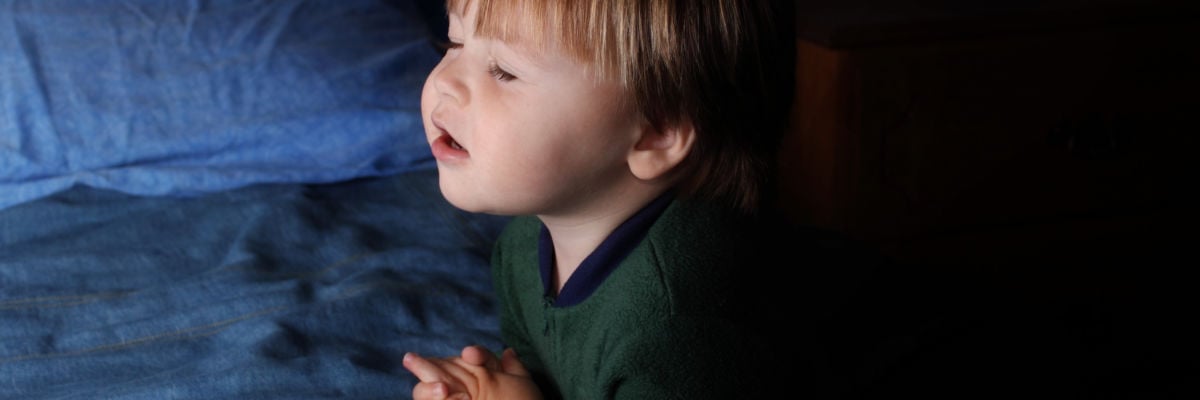
DAY 313
CHALLENGE
“Religion is unnatural. Children are not born as believers but have to be indoctrinated into it.”
DEFENSE
On the contrary, children are naturally predisposed to religious belief.
As scientists have shown using tests that measure the amount of attention babies pay to things, they are aware in the first year of life of the difference between beings with mind and intention (agents) and inanimate objects.
Further tests have indicated that small children do not presuppose that agents are human or that they must be visible, and they are prepared to attribute superhuman levels of knowledge and power to agents, as well as the ability to survive death.
Small children are also predisposed to see purpose and design in the world and to attribute its creation, and the creation of the life forms within it, to non-human agents. This predisposition persists even when their parents offer contrary explanations.
Children of this age also recognize the difference between what is real and what is “make-believe” or pretend. They are aware, for example, that real cats cannot talk, only pretend ones can. Yet they place the kind of non-human agents that we have been describing in the real rather than the make-believe category.
All of this means children are naturally predisposed to believe in religious concepts like souls, the afterlife, angels, gods, and God. It is no wonder, then, that religion is a human universal—something found in every human culture, both historically and today (see Day 353).
The specific way that children’s faith develops depends on the way they are raised (see Day 10), but the predisposition to faith—and not to atheism—remains.
Due to the time it takes for children’s cognitive apparatus to develop, it similarly requires time for these religious beliefs to appear, but there is a natural predisposition toward them. Children thus are not “indoctrinated” into religion. Religious belief is a condition that is natural to them, and its emergence is a normal, natural part of childhood development.
If any position is unnatural or one that involves “indoctrination,” it is the attempt to prevent religious belief from emerging in children. TIP
For a book on this subject, see Justin Barrett’s Born Believers: The Science of Children’s Religious Belief.



